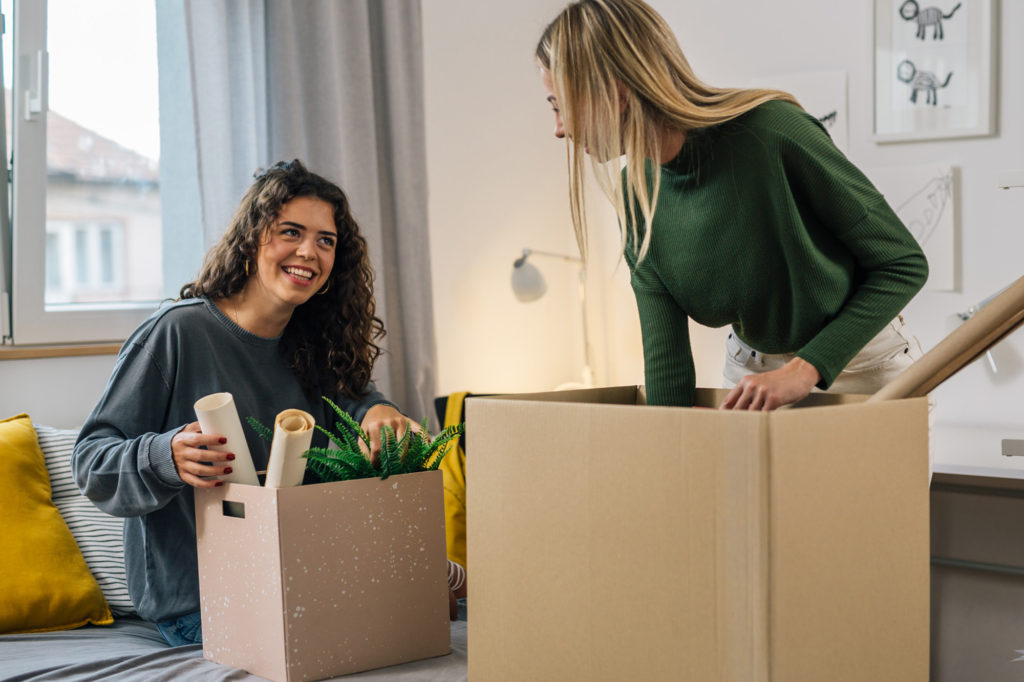Navigating Off-Campus Safety: A College Student’s Handbook
Living off campus can be (and should be) an exciting and liberating experience for college students, as it provides an opportunity to gain a sense of independence. However, living off campus also requires situational awareness and knowledge about how to prioritize personal safety. In this blog post, we will share 10 safety tips for University of Florida (UF) students who are living off-campus in Gainesville.
Before diving in, if you need legal support pertaining to personal safety, please schedule a free consultation as soon as possible. We gladly make house or hospital calls, as our team at Avera & Smith is deeply committed to student safety. We have served Gainesville for 70+ years, accruing expertise in a wide range of students’ legal matters related to criminal activity, personal injury, assault, car and scooter accidents, sex crimes, stalking, and more.
Here are 10 essential UF student safety tips for students who live off campus:
- Choose Safe Neighborhoods: Before deciding on off-campus housing, research different neighborhoods to ensure they have a reputation for safety. Look for low crime rates, well-maintained streets, and a sense of community. Additionally, consider proximity to campus and amenities, as this can impact your safety. Safety truly starts with choosing the right neighborhood.
- Secure Your Housing: When searching for housing, prioritize security features. Look for properties with sturdy doors, deadbolt locks, and window locks. If possible, consider renting in a building with controlled access or a security system. If not, you can consider investing in a security system and/or motion-sensor lights near entry points and parking areas. Also, be sure to add another layer of protection for your belongings by obtaining renter’s insurance. This will cover any losses due to theft, fire, or other unforeseen events.
- Familiarize Yourself with Campus Layout: Make it a priority to become familiar with the layout of your college campus. This knowledge will help you navigate safely, especially during late-night study sessions or extracurricular activities. Knowing the locations of safe places, emergency exits, blue light emergency phones, and well-traveled paths can be crucial in case of an emergency and can save precious seconds in times of need.
- Plan Your Routes: Before heading out, plan your routes to and from your destinations. Stick to well-populated areas and avoid taking shortcuts through unfamiliar or potentially unsafe neighborhoods. Share your itinerary with a roommate or close friend so someone always knows where you are. You should also plan to change your routes from time to time. While planning ahead ensures a safer journey, adding variety to your routine helps decrease the likelihood of stalking.
- Stay Vigilant in Unfamiliar Areas: Whether you’re exploring your new neighborhood or walking back home late at night, stay alert and aware of your surroundings. While this may seem obvious, it’s truly one of the top UF student safety tips because we all are guilty of becoming complacent and distracted. Trust your instincts, avoid isolated areas, be cautious when interacting with strangers, and be mindful of any suspicious activity. Remember, simply being aware can prevent a potential threat.
- Stick to Well-Lit Areas: When walking at night, stay within well-lit areas. Avoid poorly lit streets, alleys, or parks that can hide potential threats. Invest in a small flashlight or use the flashlight feature on your smartphone to increase visibility. A well-lit area helps minimize the potential for dangerous situations to unfold.
- Travel in Groups: Whenever possible, travel with a group of friends or classmates, especially during nighttime outings. There is strength in numbers, and being part of a group can deter potential criminals. If you’re attending an event or social gathering off-campus, arrange for transportation together and ensure everyone arrives back home safely.
- Utilize Public Transportation or Shuttle Services: Take advantage of public transportation or shuttle services. These services are often well-monitored and can provide a safer alternative to walking alone, especially during late hours. The University of Florida offers SNAP: Student Nighttime Auxiliary Patrol, Later Gator, and other personal safety services. UF also has a number of other alternative transportation ideas and services; learn about all of your different options here.
- Know Your Neighbors: Take time to get to know your neighbors and build a sense of community. This can help create a support network and encourage a safer living environment. Look out for each other and report any suspicious activities to the appropriate authorities. A united, neighborly community is a safer community.
- Take Notice of Strangers: Knowing your neighbors works hand-in-hand with being aware of strangers. Be sure to avoid allowing strangers to enter or tailgate behind you into secure buildings, and remember: keep your doors locked when you’re inside or away.
Your safety is a priority. By following these UF student safety tips and remaining vigilant, you can enjoy your college experience while also ensuring your well-being. Safety is a collective effort, and together we can create a secure living environment for all college students. Should you need legal support, know that by partnering with Avera & Smith you gain access to a dedicated team that understands the unique concerns and needs of students living off campus. Whether you have questions regarding criminal activity, personal injury claims, or other legal matters, Avera & Smith is here for you. Schedule your free consultation online or by calling us toll-free at 352-707-2454.
